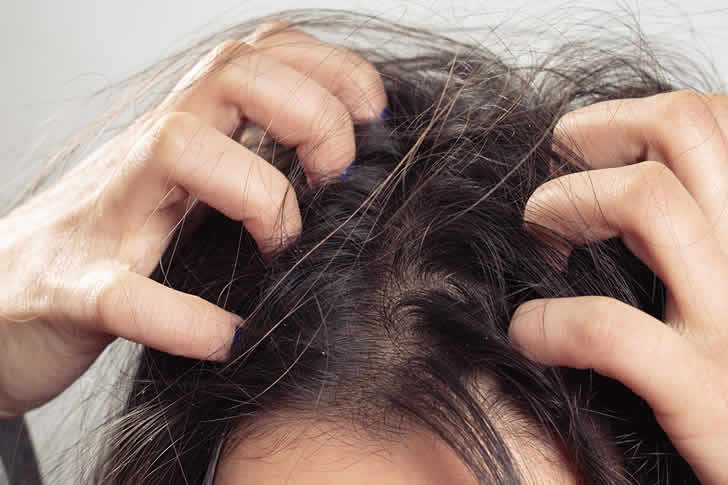Do You Know These Signs Of Plaque Psoriasis?
Plaque psoriasis is a chronic autoimmune condition that causes the rapid buildup of skin cells, resulting in scaling on the skin’s surface. This inflammatory disease can significantly impact a person’s quality of life, affecting not only their physical health but also their emotional well-being.

Understanding Plaque Psoriasis
What is Plaque Psoriasis?
Plaque psoriasis is the most common form of psoriasis, characterized by red, inflamed patches covered with silvery-white scales. These patches, or plaques, can appear anywhere on the body but are most commonly found on the elbows, knees, scalp, and lower back.
Causes and Risk Factors
- Genetics: Family history of psoriasis increases risk.
- Immune System: An overactive immune system triggers inflammation and rapid skin cell production.
- Triggers: Stress, skin injuries, infections, and certain medications can trigger or worsen psoriasis.
Symptoms
- Red patches of skin covered with thick, silvery scales.
- Dry, cracked skin that may bleed.
- Itching, burning, or soreness around the patches.
- Thickened, pitted, or ridged nails.
- Swollen and stiff joints (psoriatic arthritis).
- Silvery-White Scales
- Thick Plaques
- Emotional Impact
Diagnosis of Plaque Psoriasis
Medical History and Physical Examination
A dermatologist will typically diagnose plaque psoriasis based on a physical examination and medical history. They may ask about:
- Family history of psoriasis or other autoimmune diseases.
- Triggers or recent changes in health.
- Symptoms and their duration.
Skin Biopsy
In some cases, a skin biopsy may be performed to confirm the diagnosis. A small sample of skin is taken and examined under a microscope to differentiate plaque psoriasis from other skin conditions.
Treatment Options
Topical Treatments
- Corticosteroids: Reduce inflammation and slow skin cell turnover.
- Vitamin D Analogues: Slow skin cell growth.
- Topical Retinoids: Reduce inflammation and scaling.
- Coal Tar: Reduces scaling, itching, and inflammation.
Phototherapy
- UVB Therapy: Exposure to ultraviolet B light can slow the growth of affected skin cells.
- PUVA Therapy: Combines a drug called psoralen with UVA light to improve skin condition.
Systemic Treatments
- Oral Medications
- Biologics: Target specific parts of the immune system.
Lifestyle and Home Remedies
- Moisturizing: Keeping the skin hydrated can reduce dryness and scaling.
- Stress Management: Techniques such as yoga, meditation, and therapy can help manage stress, a known trigger.
- Dietary Changes: Eating a balanced diet and avoiding trigger foods can help manage symptoms.
Managing Plaque Psoriasis
Daily Care Tips
- Bathe regularly: Use lukewarm water and gentle, moisturizing cleansers.
- Avoid harsh skincare products: Use fragrance-free and hypoallergenic products.
- Stay hydrated: Drink plenty of water to keep skin hydrated from within.
- Avoid triggers: Identify and avoid personal triggers such as stress, smoking, and certain foods.
Emotional and Psychological Support
- Support Groups: Joining a support group can provide emotional comfort and practical advice.
- Counseling: Professional counseling can help manage the emotional impact of psoriasis.
Q&A: Common Questions About Plaque Psoriasis
Q: Is plaque psoriasis contagious? A: No, plaque psoriasis is not contagious. It cannot be spread from person to person through physical contact.
Q: Can diet affect plaque psoriasis? A: Yes, certain foods may trigger or worsen symptoms. A balanced diet rich in anti-inflammatory foods like fruits, vegetables, and omega-3 fatty acids can help manage symptoms.
Q: Is there a cure for plaque psoriasis? A: Currently, there is no cure for plaque psoriasis. However, treatments can help manage symptoms and improve quality of life.
Q: Can stress cause plaque psoriasis? A: Stress is a known trigger for psoriasis flare-ups. Managing stress through relaxation techniques and therapy can help reduce flare-ups.
Q: How often should I moisturize my skin? A: It’s important to moisturize your skin at least once a day, or more often if your skin feels particularly dry.
Comparative Analysis of Treatments
Efficacy and Side Effects
| Treatment | Efficacy | Side Effects |
|---|---|---|
| Topical Steroids | High | Skin thinning, irritation |
| Phototherapy | Moderate to High | Skin aging, risk of skin cancer |
| Oral Medications | High | Liver damage, high blood pressure |
| Biologics | High | Increased risk of infections |
Cost and Accessibility
| Treatment | Cost Range | Accessibility |
|---|---|---|
| Topical Steroids | $10 – $50/month | Widely available |
| Phototherapy | $100 – $500/session | Requires medical facility |
| Oral Medications | $200 – $1000/month | Prescription needed |
| Biologics | $1000 – $5000/month | Specialty clinics |
Conclusion
Plaque psoriasis is a chronic condition that requires a comprehensive approach to management and treatment. Understanding the symptoms, triggers, and available treatments can help individuals with psoriasis lead a healthier and more comfortable life. With advancements in medical treatments and lifestyle modifications, managing plaque psoriasis effectively is more achievable than ever.
Sources







Recent Comments